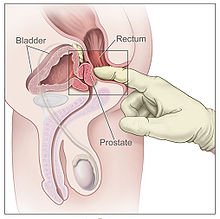Whether to get screened for prostate cancer is a question that men aged 55 to 69 should decide themselves in consultation with their doctors, according to finalized guidance issued Tuesday by an influential panel of health care experts.
New evidence suggests that PSA blood tests can slightly reduce the chances of dying from the disease for some men, so those decisions may be a little easier. Though screening can sometimes lead to drastic, needless treatment, the panel says that can sometimes be avoided with close monitoring when cancer is detected.
Related
Cancer deaths fall, thanks mostly to drop in smoking
The government-appointed U.S. Preventive Services Task Force had earlier opposed routine screening. Its new guidance, echoing other groups’ advice and affirming its draft recommendations issued last year, was published Tuesday in the Journal of the American Medical Association.
The guidance says it’s important to weigh the potential benefits and harms of screening. The test looks for elevated levels of a protein in the blood that may signal cancer but can also be caused by less serious prostate problems.
A key question is whether the patient has a higher-than-average risk for developing prostate cancer, says Dr. Michael Munger, president of the American Academy of Family Physicians. These men include African-Americans and those with a family history of prostate cancer, especially if a father or brother developed the disease before age 70. These men would be the best candidates for screening.
The risks of screening: Which carries the risk of infection. If cancer is detected, patients must weigh risks of treatment, which may include radiation and surgery, sometimes resulting in incontinence and impotence.

